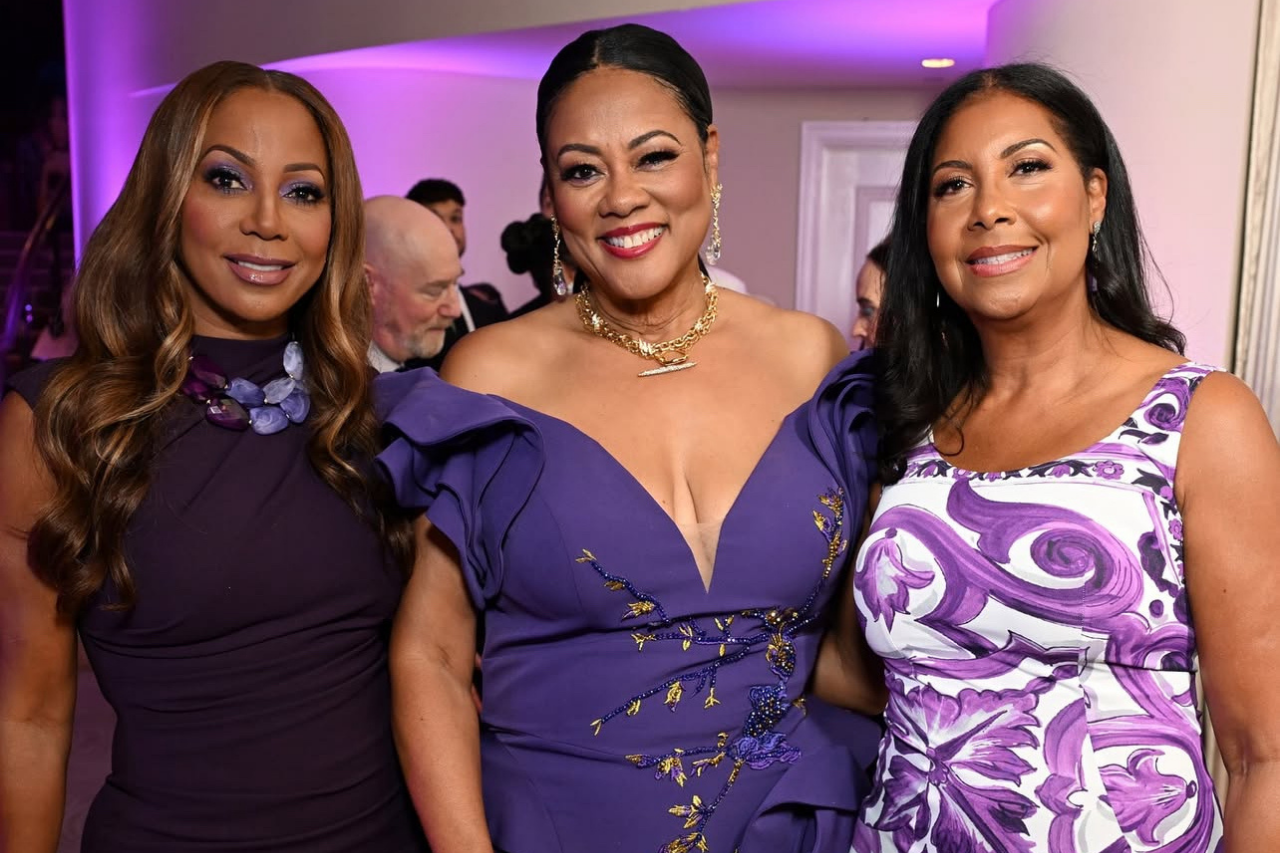At the Elizabeth Taylor AIDS Foundation Night of Compassion gala, held in September 2025, leading figures Cookie Johnson, Tina Knowles, Lela Rochon, and Holly Robinson Peete came together in solidarity—not only to honor the legacy of activism but to shine a light on lessons from the past and challenges of the present. Their messages centered around sexual health education, stigma, family conversations, and the urgent need for equity.
Cookie Johnson is widely known as an entrepreneur, author, and philanthropist, as well as for her longstanding advocacy for HIV/AIDS awareness alongside her husband, Earvin “Magic” Johnson. At the gala, she was named the 2025 ETAF Champion. In her speech, she shared what she taught her own children about sexual health in the age of HIV/AIDS: openness, honesty, clarity, and removing shame. Her work with the Elizabeth Taylor AIDS Foundation (ETAF) is part of a broader mission to raise awareness, promote education, prevent the spread of the disease, and provide support for affected communities.

What a powerful evening last night at The Elizabeth Taylor AIDS Foundation’s Night of Compassion. To be recognized as the 2025 ETAF Champion was such a blessing. The experience was a true reminder of what can happen when we come together in compassion, faith, and action to fight for change in achieving an AIDS-free world.
Cookie Johnson on Instagram
At the gala, Cookie emphasized that conversations about sexual health must begin early, be grounded in fact, and without shame. Her approach in her own home involved teaching children about consent, bodily autonomy, prevention methods, and treatment of HIV/AIDS as a human condition—not something to be whispered about in fear. Such dialogues are essential not only for reducing risk but also for diminishing the stigma that still surrounds HIV.
Global Picture
- In 2024 the number of new HIV infections globally was approximately 1.3 million, nearly unchanged from the year before. UNAIDS
- Since 2010 new HIV infections have declined by about 40% overall. UNAIDS
- Among children ages 0 to 19, new infections have fallen by about 62% since 2010, from ~310,000 to ~120,000 in 2024. UNAIDS
- AIDS related deaths globally in 2024 were around 630,000, down about 54% compared to 2010. WHO UNAIDS
- Among children under 19, approximately 2.42 million are living with HIV globally. In 2024 about 712 children per day were newly infected, and about 250 children per day died from AIDS related causes. WHO UNAIDS
U.S. Context
- In 2023, there were approximately 39,200 HIV diagnoses among persons aged 13 years and older in the U.S. CDC
- The HIV diagnosis rate in 2023 was about 13.7 per 100,000 persons aged 13 and older. CDC
- Disparities remain stark. Young adults (age 25-34) account for a large share of diagnoses. Black/African American persons represent a disproportionate number of cases relative to their population share. The southern states show particularly elevated rates.

Tina Knowles was honored with the Commitment to End AIDS Award at the same event. Knowles is a designer, mother, businesswoman, and longtime LGBTQ+ ally. She has personal ties to the crisis—her nephew passed away due to AIDS‐related complications. She has used her public profile and philanthropic efforts to support HIV/AIDS awareness and services. Her recognition at the gala acknowledges not only personal loss but sustained effort toward advocacy, especially in communities often marginalized in conversations about healthcare.
Recent Advances & Risks
- In mid-2025, the U.S. FDA approved lenacapavir (Yeztugo), a twice-yearly injectable for HIV prevention (PrEP), offering an alternative to daily pills. This has the potential to improve adherence and reduce new infections when access is equitable.
- However global funding for HIV/AIDS prevention and treatment is under pressure. UNAIDS warns that without sustained investment many gains are at risk.
Holly Robinson Peete also attended the gala. She is an actress, author, and activist, widely known for roles in television, but also for her nonprofit work. With her husband, she co-founded the HollyRod Foundation, which provides support for individuals with Parkinson’s disease and families with children on the autism spectrum. Though her foundation’s primary focus isn’t HIV/AIDS, her attendance signals solidarity and aligns with a broader philanthropic culture in which many public figures support overlapping causes. She has also been involved in HIV/AIDS-related charity work in other contexts.

The stories shared by Cookie Johnson, the tribute to Tina Knowles, and the solidarity shown by attendees like Holly Robinson Peete are not symbolic only. They intersect with urgent public health truths.
Parents and caregivers influence how young people understand sexual health, consent, protection, and disease prevention. Shame and silence on such topics often lead to misinformation or avoidance of testing and care. When public figures speak openly about teaching their children, about loss, about empathy, it reduces barriers for many others to do so too.
Gender, race, geography, income, and access to care all shape how individuals experience HIV. The U.S. data shows that Black Americans and people living in certain states face higher risks. Globally, children and young people continue to be among the most vulnerable.
Advances like twice-yearly PrEP injectables show that the tools are improving. But tools alone do not suffice. They must be paired with education, stigma reduction, family dialogue, policy support, and stable funding.
At its core, the Night of Compassion gala reminds us of the power in combining visibility, personal responsibility, and policy-level change. Cookie Johnson teaching her children. Tina Knowles honoring a nephew and using her voice. Holly Robinson Peete showing up in support. These are not isolated acts. They are threads in the broader tapestry of hope, activism, and the fight against stigma.
As the latest statistics show HIV infections among children have dropped significantly, but progress is plateauing in some areas. AIDS-related deaths are falling, but still too many are lost each day. Without honest conversations about sex, prevention, access, and without support from families, public health systems, and communities, those statistics risk reversing.
In the end the lesson is clear: the fight against HIV/AIDS is as much about compassion, dialogue, inclusion, and justice as it is about medical breakthroughs. Gala rooms, awards, and stars matter only insofar as they inspire real conversations, real change, and real support for people out of view.
Discover more from MidScroll
Subscribe to get the latest posts sent to your email.



